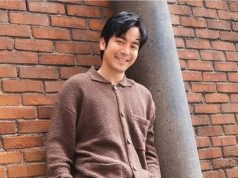Comedian Vice Ganda’s post against his critics whom he described as “pa-woke” raised arguments on the smart-shaming culture among Filipinos again.
The Kapamilya host aired his frustration on May 21 that these Filipinos only perceive the negative contexts in her tweets.
Sabi ni Vice: ‘My life is sooooo good!’
Sabi ng mga #PaWoke: ‘Feeling Privileged’ ‘Insensitive sa mahihirap’
‘Walang empathy’Sabi ni Vice: ‘My life is soooo bad!’
Sabi ng mga #PaWoke:
‘Ungrateful!’So paano po talaga dapat ang chika mga #PaWoke??? Lolz
— jose marie viceral (@vicegandako) May 21, 2019
This stemmed from his previous tweet about shopping in Calgary, a city in Canada. Vice Ganda went there with his mother and rumored boyfriend Ion Perez for vacation.
“Shopping muna ko. More shoes! More outfit! More fun! My life is sooooo good!” he said on May 18.
Some Filipinos perceived his tweet as offensive and haughty given his privilege. Others even referenced his political leanings.
The TV host clapped back via a series of tweets that people are too riled up on the micro-blogging platform over his shopping activity overseas.
He screenshot the tweets of some of them and called them “pa-woke.”
“And I don’t have to brag about my monetary capabilities. Everybody knows I’m a millionaire because I’m a hardworking Filipino,” one of his tweets said.
Andaming nag aaway, andaming galit andaming nagkakagulo sa twitter, sa fb sa ig. Valakayojen!!!! Shopping muna ko. More shoes! More outfit! More fun! My life is sooooo good!
— jose marie viceral (@vicegandako) May 18, 2019
The word “woke” soon trended on Twitter Philippines.
While its lexical definition is the past tense of “wake,” it is used colloquially to describe people who are socially conscious or knowledgeable about current affairs.
Some Filipinos noted that using the term “pa-woke” or being pretentious against others is a form of smart-shaming or anti-intellectualism.
Twitter user Ogie Rosa shared that calling a person “pa-woke” is wrong because it discourages the person to initiate a healthy discussion on social media.
“It attacks the person, not the argument. It promotes self-entitlement (you impose your definition of what’s relevant & what isn’t),” Rosa said on May 22.
“It discourages people from speaking & engaging in discussions,” he added.
The dangers of calling someone PA-WOKE:
1. It attacks the person, not the argument.
2. It promotes self-entitlement (you impose your definition of what's relevant & what isn't).
3. It discourages people from speaking & engaging in discussions.
WE ALL HAVE TO START SOMEWHERE.
— Ogie Rosa (@ogie_rosa) May 21, 2019
Dangerous sentiment
Reference website Study.com, anti-intellectualism is “an attitude that devalues intellectual pursuits. People displaying this attitude distrust science, art, history and other things they read in books.”
In the Philippines, writer Shakira Sison noted that many Filipinos view others with differing opinions as elitists, arrogant and anti-poor.
Sison said that this growing trend against meaningful conversations is dangerous.
“It’s a dangerous sentiment to leave the thinking and philosophizing to those who have economic power. It’s detrimental to society to be complacent in our contentment and to think that resisting, protesting, or even questioning long-held beliefs and rules is not every person’s duty,” Sison said in an opinion piece.
She explained that such hateful sentiment had been used by dictators before wherein educated people were portrayed “as a threat because they question social norms and question established opinion.”
To have “intellectual freedom” is scary, Sison admitted, but fostering this mindset is better than being ignorant
“If it makes us insecure to be unfamiliar with topics and concepts, remember that it’s as easy looking them up online and asking questions to enlighten ourselves, instead of believing that knowledge is this scary thing meant for other people. It truly is there for everyone’s taking,” she said.










